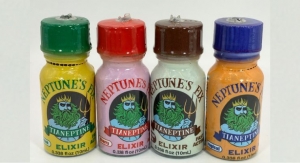01.27.22
The California State Assembly has passed a bill (AB-1341) effectively banning the sale of dietary supplements either formulated or marketed for weight loss to anyone under the age of 18. The bill is now advancing to the committee process in the California Senate.
The ban refers to “dietary supplements for weight loss,” which legislators define as a “class of dietary supplements sold for or used with the intent to achieve weight loss that are lawfully sold, transferred, or furnished over the counter, with or without a prescription.”
Without listing any ingredient in particular, the legislation seeks to ban: thermogens, which are compounds that stimulate metabolism which can include caffeine, green tea, and capsaicin; lipotropics, which are a combination of amino acids, vitamins, and minerals formulated to support fat metabolism; hormones, including hormone modulators and hormone mimetics; appetite suppressants; and ingredients deemed adulterated under section 342 of Title 21 of the U.S. code.
The bill seeks to prohibit access to these products by customers in retail environments, and limit direct access only to managers, assistant managers, acting managers, or any other supervisory personnel at an establishment.
NPA: There Will be Unintended Consequences
The Natural Products Association (NPA), which has been fighting against this legislation and similar proposed bills being considered in New York, New Jersey, Missouri, and Massachusetts, issued a statement in opposition to its passage. Of note, New York, New Jersey, and Massachusetts have companion bills in both state legislative chambers.
NPA believes that there could be an unintended consequence: that those under the age of 18 might be driven away from responsible retailers toward “shady online sellers” to buy dietary supplements.
“This legislation appears to be a solution in search of a problem. But there is no problem because there is no evidence of a linkage between dietary supplements and eating disorders. None. How do we know this? Because we asked,” Kyle Turk, director of government affairs for NPA, said in a testimony against the California legislation last year. “Under this bill, the fine for selling nutritional supplements would be four to five times higher than the fines for selling alcohol or tobacco to a minor. Dietary supplements are not drugs, nor should they be treated as such. If AB 1341 passes it would criminalize the sale of healthy products like whey protein and amino acids.”
According to NPA, the bill’s sponsors have claimed a link between dietary supplement usage and disordered eating. However, NPA said it found no adverse events or reporting associated with dietary supplements and eating disorders upon filing a Freedom of Information Act (FOIA) request with the U.S. Food and Drug Administration (FDA).
“We share the concern for teenagers with eating disorders, but banning ingredients found in vitamin water, fruit smoothies and other common products in the grocery store is an overreach,” said Daniel Fabricant, PhD, president and CEO of NPA. “More Americans are turning to natural products during the pandemic than ever before because they want to stay healthy. Obesity and poor nutrition are a significant problem in the U.S., and that is why we are focused on expanding access to nutritional supplements through government programs including WIC, SNAP, and through private health savings accounts.”
NPA has been coordinating a campaign against this ban and the other aforementioned bills, which has generated 4,000 letters and 3,000 calls to elected officials in California.
“We need people to make their voices heard and tell elected officials to reject this misguided proposal. The federal government has in place vast enforcement powers and a long track record of punishing criminals who break the law. We support vigorous enforcement of the law to protect consumers, but this proposal is unnecessary and will do nothing to protect public health,” Fabricant said.
The ban refers to “dietary supplements for weight loss,” which legislators define as a “class of dietary supplements sold for or used with the intent to achieve weight loss that are lawfully sold, transferred, or furnished over the counter, with or without a prescription.”
Without listing any ingredient in particular, the legislation seeks to ban: thermogens, which are compounds that stimulate metabolism which can include caffeine, green tea, and capsaicin; lipotropics, which are a combination of amino acids, vitamins, and minerals formulated to support fat metabolism; hormones, including hormone modulators and hormone mimetics; appetite suppressants; and ingredients deemed adulterated under section 342 of Title 21 of the U.S. code.
The bill seeks to prohibit access to these products by customers in retail environments, and limit direct access only to managers, assistant managers, acting managers, or any other supervisory personnel at an establishment.
NPA: There Will be Unintended Consequences
The Natural Products Association (NPA), which has been fighting against this legislation and similar proposed bills being considered in New York, New Jersey, Missouri, and Massachusetts, issued a statement in opposition to its passage. Of note, New York, New Jersey, and Massachusetts have companion bills in both state legislative chambers.
NPA believes that there could be an unintended consequence: that those under the age of 18 might be driven away from responsible retailers toward “shady online sellers” to buy dietary supplements.
“This legislation appears to be a solution in search of a problem. But there is no problem because there is no evidence of a linkage between dietary supplements and eating disorders. None. How do we know this? Because we asked,” Kyle Turk, director of government affairs for NPA, said in a testimony against the California legislation last year. “Under this bill, the fine for selling nutritional supplements would be four to five times higher than the fines for selling alcohol or tobacco to a minor. Dietary supplements are not drugs, nor should they be treated as such. If AB 1341 passes it would criminalize the sale of healthy products like whey protein and amino acids.”
According to NPA, the bill’s sponsors have claimed a link between dietary supplement usage and disordered eating. However, NPA said it found no adverse events or reporting associated with dietary supplements and eating disorders upon filing a Freedom of Information Act (FOIA) request with the U.S. Food and Drug Administration (FDA).
“We share the concern for teenagers with eating disorders, but banning ingredients found in vitamin water, fruit smoothies and other common products in the grocery store is an overreach,” said Daniel Fabricant, PhD, president and CEO of NPA. “More Americans are turning to natural products during the pandemic than ever before because they want to stay healthy. Obesity and poor nutrition are a significant problem in the U.S., and that is why we are focused on expanding access to nutritional supplements through government programs including WIC, SNAP, and through private health savings accounts.”
NPA has been coordinating a campaign against this ban and the other aforementioned bills, which has generated 4,000 letters and 3,000 calls to elected officials in California.
“We need people to make their voices heard and tell elected officials to reject this misguided proposal. The federal government has in place vast enforcement powers and a long track record of punishing criminals who break the law. We support vigorous enforcement of the law to protect consumers, but this proposal is unnecessary and will do nothing to protect public health,” Fabricant said.




























